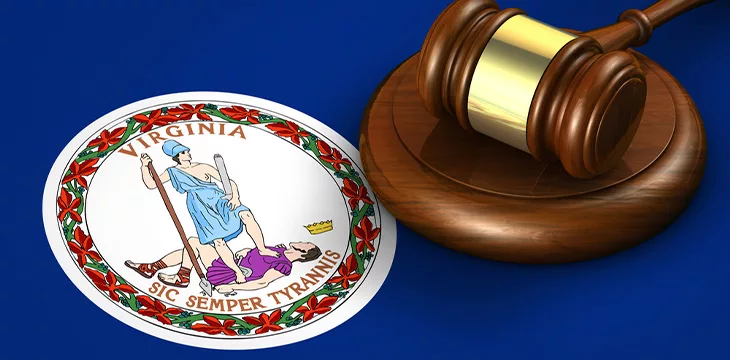|
Getting your Trinity Audio player ready...
|
The U.S. State Senate of Virginia has introduced legislation addressing digital asset mining and transactions, along with their tax treatment.
If passed, the legislation would establish rights for digital asset miners and validators. It also provides tax incentives for purchasing goods and services with digital assets.
State Senator Saddam Azlan Salin proposed the bill on January 9, and it is currently under discussion in the Senate. If approved, “Senate Bill 339” would then proceed to the House for consideration before potentially becoming law.
The bill’s digital asset-related provisions include eliminating the requirement for individuals and businesses involved in digital asset mining to obtain money transmitter licenses.
“No license under this chapter shall be required of any person engaging in-home digital asset 37 mining, digital asset mining, or digital asset mining business activities, as those terms are defined in § 38 15.2-2288.9,” according to the proposed legislation.
Not having to obtain a license could substantially lower the barrier to entry for individuals and businesses looking to get into the digital asset mining sector.
Along these lines, the bill also aims to protect miners from discrimination in industrial zones, prohibiting them from banning digital asset mining and imposing noise restrictions above those already in place.
Another digital asset-friendly measure in the legislation is an exemption for issuers and sellers of digital assets from securities registration requirements if they meet the following criteria:
“(i) the digital asset cannot be considered an investment contract, (ii) the issuer or seller of the digital asset did not market the digital asset to the initial buyer as a financial investment, and (iii) the issuer or seller of the digital asset takes other reasonable precautions to prevent an initial buyer from purchasing the digital asset as a financial investment.”
This is essentially the same definition provided by the Howey Test, which the U.S. Securities and Exchange Commission (SEC) uses to determine whether an asset qualifies as a security, i.e., an investment of money in a common enterprise, with an expectation of profits solely from the efforts of others.
According to the proposed bill, “a business offering to provide digital asset mining or staking as a service for individuals or to other businesses shall not be considered a financial investment”—and thus not considered a security and exempt from the associated registration requirements.
However, such a business must file a notice of intent with the commission to qualify for the exemption.
Finally, the legislation aims to incentivize digital asset transactions by offering certain tax breaks.
Specifically, the bill proposes that for tax years beginning on and after January 1, 2024, individuals can exclude up to $200 per transaction from their net capital gain to calculate tax. This exclusion applies to gains derived from using digital assets to purchase goods or services.
Watch: Think of Bitcoin mining as financial self-discipline

 02-15-2026
02-15-2026 




